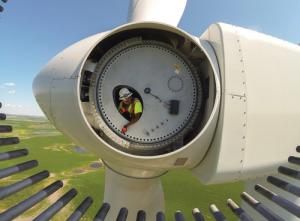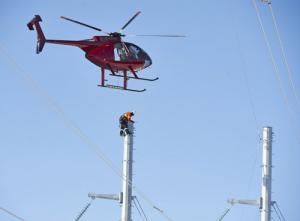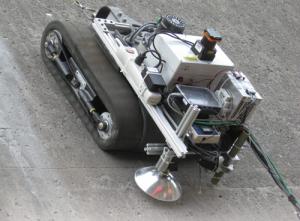Frank Feelings About the Future, Fully Off-the-Record
Patricia McMurray is Editor-at-Large at PUF.
For the third year in a row, we talked with sixteen thought leaders from utilities (investor-owned and not), energy service companies, the regulatory and consumer advocacy communities, and trade associations. It was a distinguished group of senior executives representing many facets of the industry. We looked to different regions of the United States to make sure our coverage was representative and balanced.

Eight are utility execs serving in the Northeast, Midwest, South, and West. Three are association execs. We also talked with an energy marketer, three state commissioners and a consumer advocate.
The ground rules were simple. We promised the interviews would be completely off the record. We promised not to identify any of the prestigious sixteen-member interview panel. Here are the questions we asked:
What are the most disruptive trends facing utilities today? How will they change the status quo in the next five years?
How can utilities manage the impact, threats and opportunities presented by renewable resources of all kinds?

How can utilities transition to a digital future? How can regulation support their goals?
Most Disruptive Trends for Traditional Utility Business Model
Last year, respondents highlighted distributed energy resources as the most disruptive trend. This year, DER was more or less taken for granted as the major disruptor; it wasn't really news anymore. One panelist explained that very simply, distributed generation, like energy efficiency, reduces consumption and therefore the throughput by which utilities recover their costs.
Many respondents said the new technologies coming onto the system were the most disruptive trend. One executive who took the long view remarked that the most disruptive trend is the arc of technology. If you look at the history of technology throughout the history of the world, they said, it progressively destroys monopolies, one after another. That individual used the Bell system, disrupted by the cellular phone industry, as an example.
What's wrong with new technologies? Why are they a challenge? New technologies coming onto the system don't operate within the traditional market structures. Speaking of markets, another exec said the most disruptive trend is the increasing difference between the cost of energy and the cost of providing consumers the service they want. Put more succinctly, the difference between the cost of energy and the cost of power.

Similarly, we heard, "It's the move to cleaner energy in general. Because that has implications in the generation space, the transmission space, the distribution space, and at the customer level behind the meter."
More specifically, several others identified battery storage and the combination of renewables plus battery storage as the most disruptive trend. That trend translates into lost sales, and utilities then have to find ways of making up lost revenue. The major corporate players utilizing renewables plus storage are the big commercial customers such as Walmart, Ikea, Target, Marriott.
Storage isn't yet as available at the residential level as it is at the commercial or industrial level. Rooftop solar is still the major renewable disruptor at the residential level. One exec took a dim view of the increasing amount of distributed energy his customers generate, saying the amount of grid-based energy sales his company makes is going down. "What I'm concerned about now is the partial defection spiral - we won't call it the death spiral."
One respondent who took a more sanguine view of the question said that, "Although disruption sometimes has a negative connotation, my definition is simply something that is changing quickly." They went on to say that the two biggest disruptors are the move toward the electrification of society generally and of course, the advent of distributed generation.

But this year, there was a new entrant into the "disruptive force" category: climate change. One respondent said, "Climate change is affecting the resources a utility must procure, and it's also affecting the reliability of the infrastructure." They added that the increase in natural disasters is resulting in infrastructure failure.
One uniquely contrarian response to the disruptor question: "Customers. They see they have choices and utilities have no idea how to work with customers who have choice."
How Trends will Change Status Quo in Next Five Years
In the next five years, most of those interviewed agreed, we will see more and more movement towards a decentralized grid here in the U.S. There will be a bidirectional power flow, not one power flow from big power plants to customers. And the issue of direct access by big commercial entities mentioned above will become more prevalent.
For example, one government exec said, they had heard that Microsoft didn't want to use its local utility anymore and decided to procure its own energy. They added that Walmart and other companies are very active in that direct access space. These companies build their own energy resources. The exec quoted their position, characterizing it this way. "We want one hundred percent renewable, we want it to be lower cost, and you need to deliver that, or we will figure out how to do it ourselves."
These trends are very different from what the industry has seen historically.
Another issue raised in some states by DER presents a new problem. In those states, DER means there is more power on the system than there is load to utilize it. Solar over-generation is becoming a major issue. Batteries now available can store power for one or two days; they are not able to store power for four months. But there are people on the system who want to be compensated for that solar-generated electricity, whether it's used or not.
One consumer advocate said DER will impact rate structures. It will impact investments. "If we don't get the compensation structure correct for renewable resources, we are going to shift enormous costs from DER participants to non-participants."
Utilities will be doing more public risk planning because of the effects of climate change, according to one government official. They will come up with new ideas about how to finance their infrastructure in a quicker time frame, according to another respondent. The government official compared the new energy business to the insurance industry, saying that both will need to take environmental risks into account in the future.
How Utilities Most Effectively Manage Impacts, Opportunities, Threats of Utility-Scale and Distributed Renewables
In the western U.S., in the middle of the day, because of overgeneration on solar facilities, the power price is negative. A consumer is getting paid to take power from the market. One exec in that part of the country used a unique analogy. He said, "Imagine you go into a Starbucks for coffee. It's very crowded. Instead of asking you to pay for the coffee, they give you a coffee and five dollars to leave the store. That is what's happening in the wholesale market right now."
An executive in the regulatory space pointed out that it's well known that some states are reversing their position on net metering because non-participating customers have had to subsidize free riders.
Customers and their role in the new order of things were mentioned as the most important factor by many respondents. They agreed that utilities have to stay true to doing what is best for the customer. On a positive note, one exec said, "All the disruptive trends that people like to talk about as threats, we really see as opportunities for future investment - to provide affordable, reliable, service to the customer at cost-effective rates."
Utilities should try to understand exactly what the value proposition is and what their relationship is with different segments of customers. An exec in the West said that some customers want to purchase green energy but may not want to pay for their own solar panels. "We should help those who don't have solar panels themselves subscribe to assets that we own at the grid level. That retains grid-delivered kilowatt hours and works against disruption. It's competitive with private DER and solar markets."
One government exec pointed out that customers are all different now; there is no single type of customer. "A lot of the customers are like me. They don't want a smart thermostat, they just want their lights to go on."
Others focused elsewhere for the answers. One exec said, "Data analytics are the key to all this. Investments like advanced metering are cheap when you compare them to the cost of investing in a nuclear plant or a carbon capture plant.... or even utility scale renewables."
An association exec said encouraging experimentation was the most effective way to manage the impact of more renewable energy on the system. It could be that some states would require utilities to experiment with battery storage, just as the California PUC did with California utilities.
Opinions were divergent on the question of developing other resources. One utility exec said, if customers want private resources, if they want to build them and own them, make sure you are helping them do that. "Don't be a barrier to doing that."
But another respondent whose company has a different business model took a very different position, saying utilities should stick to their traditional role. "Utilities should not try to go into more lines of business. They will not create value for their shareholders that way. They never have."
How Utilities Should Transition to Digital Future
Many execs agreed that digital capabilities are outstanding when it comes to interoperability and monitoring and measuring the system. But digital resources also introduce a big surface of cyber risk. That has to be calculated in any transition to digital. One exec in the regulatory space asked, "If you're going to have an internet of things, is it hackable? Is Vladimir Putin going to spoil the milk in my refrigerator?"
To transition to a digital future, some felt that utilities should help customers use smartphones to order electric service and control their appliances. Every customer wants lower bills. Help them reach that goal. One government exec said, "We have to be thinking of utilities not in terms of people who sell megawatts or kilowatts, but people who provide a service."
Use smart meters as comprehensively as possible, according to another utility exec. Make them smarter, with accessories that allow customers to take advantage of technology. We will see dozens of devices in individual homes requiring more bandwidth of the internet, utilizing more power, and giving consumers more freedom and flexibility. The power company needs to lead the way on this.
One government exec said, "Utilities should be able to capitalize the cost of information tech and cyber security investments." Companies that are permitted to capitalize those costs will have an incentive to invest in digital upgrades. That aligns the interest of utility investors with regulators and customers.
Similarly, another government exec recommended that utilities ask in rate cases for the tech upgrades, software investments, and IT investments that are needed to get to the digital future. "There is a certain amount of infrastructure and investment that is needed. The question is, how do you make a resilient grid?"
But another exec who answered our questions pointed out that there is a minority and negative view of smart meters out there. "If you talk to a lot of people, they are not convinced that they have benefits. People are worried about privacy."
Blockchain, seemingly the hot topic this year, was mentioned by more than one exec. One said, "Everything does not need to be centralized. Blockchain technology will allow communication of data and optimization of assets."
Like blockchain, data seems to be a buzzword. A marketing professional who is something of a contrarian said, "We digitized smart meters, but then we left that data in some kind of utility basement where it isn't allowed to thrive and grow. Utilities cannot keep the data; they have to share it with customers and empower them to design their own future."
How Regulation can Support Transition to Digital Future
Several execs agreed that, "We are going to have to change the traditional regulatory process. To a large extent, regulators don't understand what's going on. The industry has been regulated the same way for a hundred years now." In that regard, they said, we can't use old products with new technology. That is, old rate design with distributed generation. "We need to begin to skate more rapidly to where the puck's going to be."
Many execs replied to this question by highlighting how times have changed. Essentially, they said, "We need to modernize our rate structures consistent with how distributed generation customers and traditional customers use the grid."
The regulators should be very careful about not trying to impose one-size-fits-all solutions and recognize the regional and even the local differences of the electrical grid. One said, let the regulation occur as close to the consumer as possible.
"Regulation actually hurts us," another said. When things get bad, the loss of customers who defect from the utility will entail lots of stranded costs. That bleak scenario, they said, means that the road to the end is paved with declining usage, which will propel constantly climbing customer bills.
"You can't just go out and raise your rates every year just because your load is falling," that exec said. Regulators don't want to have violent protests around raising rates.
An association exec said that, "Regulators are not as savvy as they need to be about getting utilities and their customers to utilize data." Similarly, another exec said that third parties need to be enabled more effectively, managing that smart meter data on behalf of the consumer instead of the utilities who are generating it.
According to one exec at a Midwestern utility, "The idea that it takes eleven or twelve months to approve a tariff is just nonsense in a digital world. Designing, delivering, learning, adjusting - this has to be done at least five to ten times faster than it is right now."
Utilities can only move forward innovatively at the pace of regulation. One exec said, "Everything we do is regulated. We need to work with regulators to develop rates, tariffs, concepts, mechanisms that help us meet the challenges that are coming."
A large utility exec said there has to be innovation in our regulatory process, which means regulators should allow experimentation. They said, "Utilities should be able to make mistakes, as long as they are done in a prudent way. Without that flexibility, it will be very difficult to transform the utility industry."
A consumer advocate offered a unique perspective. They said various types of utilities have to take a hard look at the infrastructure they will need to support their digital future. And they should find ways to collaborate so that they are all sharing one communication system. What role should regulators play in this collaboration? They should insist that utilities collaborate across sectors - water, electricity, natural gas - and avoid duplication of costs and resources.
But regulation is moving too slowly to keep up with real time events, according to one association exec. "Frankly, technology and consumerism are leading the changes that we are seeing, and they move a lot faster than regulation. Those forces are not regulatory, so they are not predictable."
A Midwestern utility exec became irate when he answered the question, saying, "Regulators should stop calling the people we interact with every month ratepayers. I want that word gone. We are all in the customer business together. They are customers!"
One important area where regulators can help is by finding sources of revenue for independent advocates to conduct their own studies. This was a suggestion from a consumer advocate. It's hard, the advocate said, to accept at face value studies that have been paid for by someone who has a stake in a particular outcome.
An exec at a utility in the West said sometimes, we can't wait for regulators. "We didn't need regulatory approval to do smart meters. It was prudent for us to do it. On cybersecurity, a regulator would be creating a dangerous situation if they said, 'I don't want you to invest in cybersecurity without running your plan by the regulator first.'" They thought most regulators would say, protect your system from cyber risks and let us figure out how to provide cost recovery, as long as it's prudent.
The best regulation, one regulator said, is a product of the utility working with their regulators. Those regulators need to understand the complexities of the issues, the political landscape, and then figure out the best way forward. That's an ongoing conversation that must take place on a regular basis.



